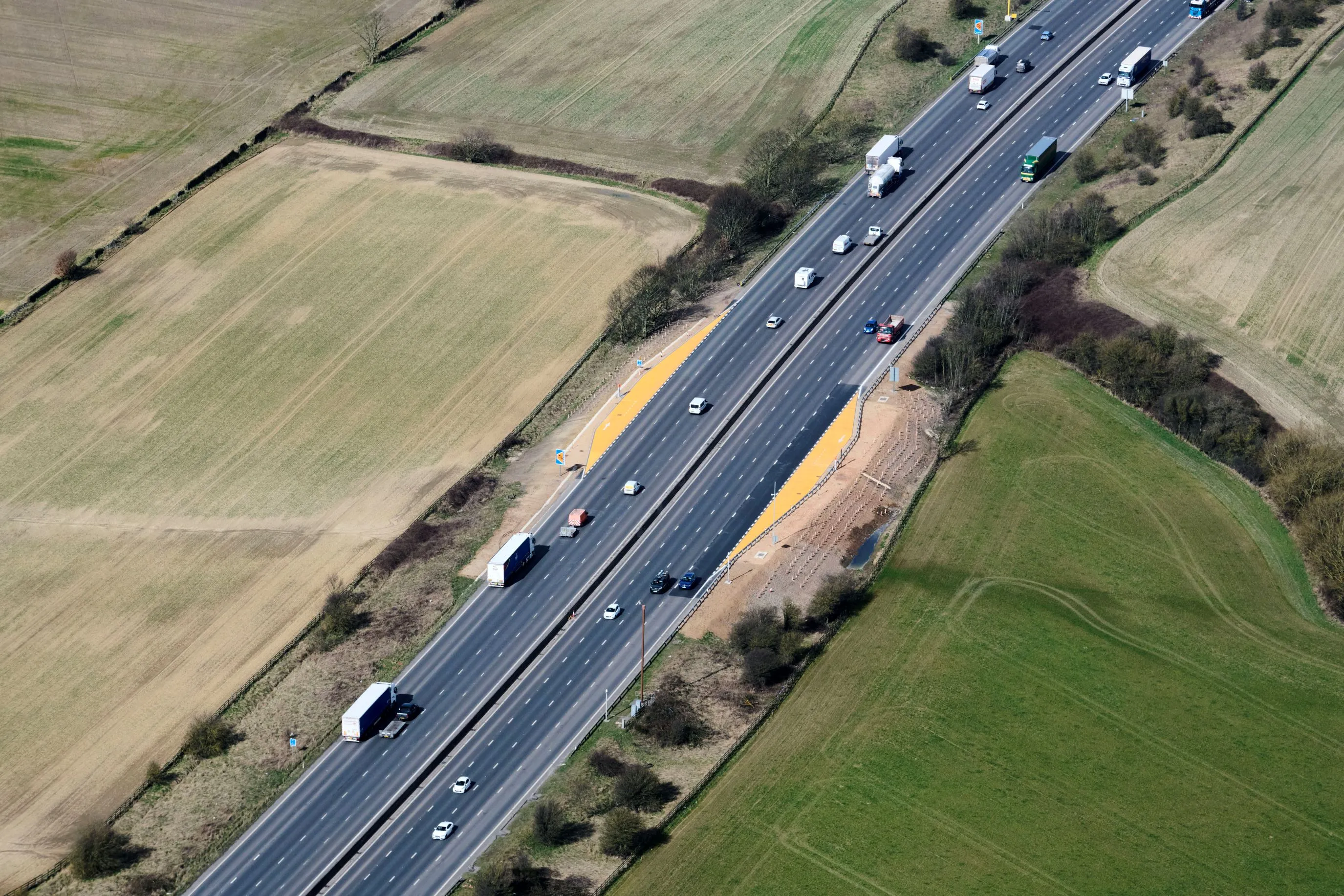An installation of SPECS3 average speed cameras from Vysionics has helped a Scottish road safety watchdog win an award
The A9 Safety Group, which monitors traffic, accidents and driving habits and conditions along the A9 trunk road, picked up the John Smart Road Safety Award from the CIHT - Chartered Institution of Highways and Transportation. The CIHT is concerned with planning, design, construction, maintenance and operation of land-based transport systems and infrastructure.
A9 Safety won the award
September 16, 2015
Read time: 2 mins
An installation of SPECS3 average speed cameras from Vysionics has helped a Scottish road safety watchdog win an award
The A9 Safety Group, which monitors traffic, accidents and driving habits and conditions along the A9 trunk road, picked up the John Smart Road Safety Award from the CIHT - Chartered Institution of Highways and Transportation. The CIHT is concerned with planning, design, construction, maintenance and operation of land-based transport systems and infrastructure.
A9 Safety won the award for a range of interventions along more than 200km of carriageway, including the implementation of 50 SPECS3 cameras.
The A9 SPECS3 installation has been in operation since October but it is too early to report on casualty analysis, according to A9 Safety. However, indicators appear to show that drivers have improved the way they use the route that stretches from Dunblane to Thurso. Since the installation went live, fewer than 10 tickets have been issued per day on traffic volumes of 24,000 vehicles. An average of 142,000 vehicles use the A9 every day, Overall speeding has dropped from 1-in-3 to 1-in-15 journeys. As well, excessive speeding, meaning 17kph and more over the limit, is down by 95%.
Also, a survey showed that 70% of drivers feel safer than before the cameras were installed. The SPECS3 cameras are mounted on highly visible columns, typically at 5km intervals, covering both single and dual carriageway sections. A9 Safety said they act as a regular reminder that the route is being monitored along its length, resulting in more considered driving behaviour.
3957 Vysionics, a UK-based ANPR (automatic number plate recognition) and average speed enforcement company, were acquired by 3987 Jenoptik, an enforcement technology group, in November. SPECS average speed enforcement cameras have been in operation since 2000 with more than 70 permanent sites and 300 temporary roadworks installations.
The A9 Safety Group, which monitors traffic, accidents and driving habits and conditions along the A9 trunk road, picked up the John Smart Road Safety Award from the CIHT - Chartered Institution of Highways and Transportation. The CIHT is concerned with planning, design, construction, maintenance and operation of land-based transport systems and infrastructure.
A9 Safety won the award for a range of interventions along more than 200km of carriageway, including the implementation of 50 SPECS3 cameras.
The A9 SPECS3 installation has been in operation since October but it is too early to report on casualty analysis, according to A9 Safety. However, indicators appear to show that drivers have improved the way they use the route that stretches from Dunblane to Thurso. Since the installation went live, fewer than 10 tickets have been issued per day on traffic volumes of 24,000 vehicles. An average of 142,000 vehicles use the A9 every day, Overall speeding has dropped from 1-in-3 to 1-in-15 journeys. As well, excessive speeding, meaning 17kph and more over the limit, is down by 95%.
Also, a survey showed that 70% of drivers feel safer than before the cameras were installed. The SPECS3 cameras are mounted on highly visible columns, typically at 5km intervals, covering both single and dual carriageway sections. A9 Safety said they act as a regular reminder that the route is being monitored along its length, resulting in more considered driving behaviour.







